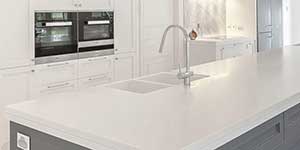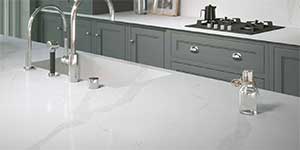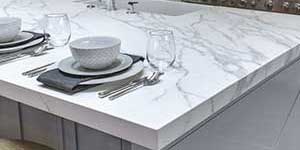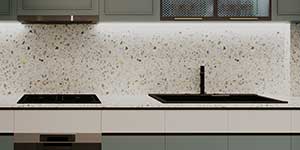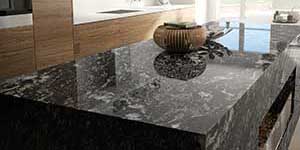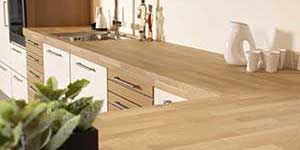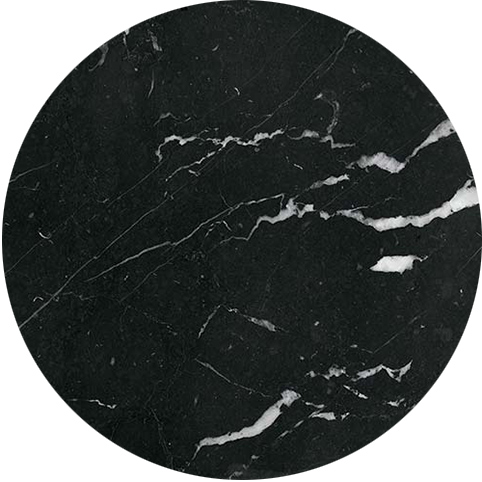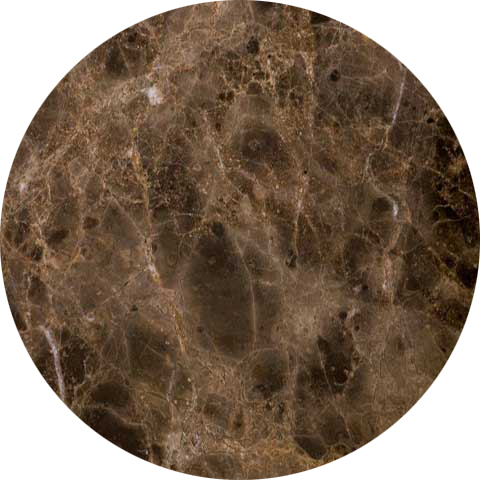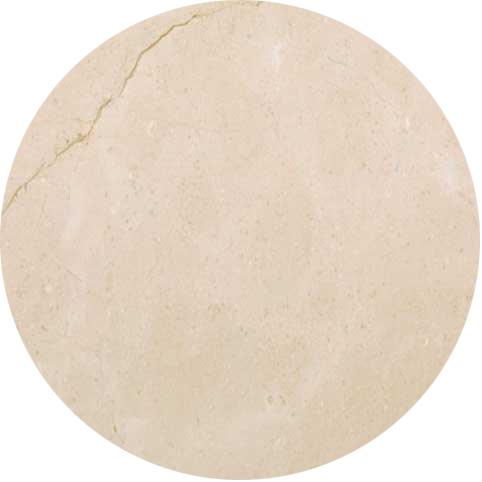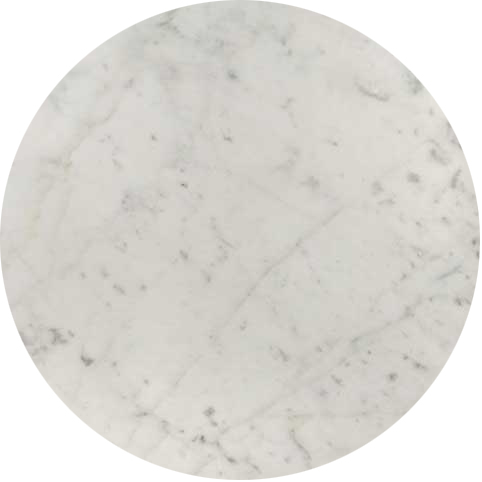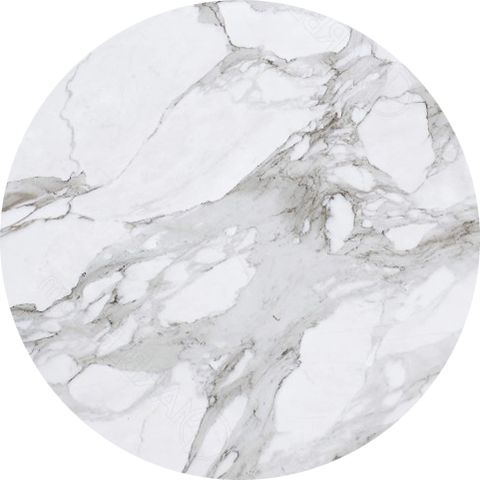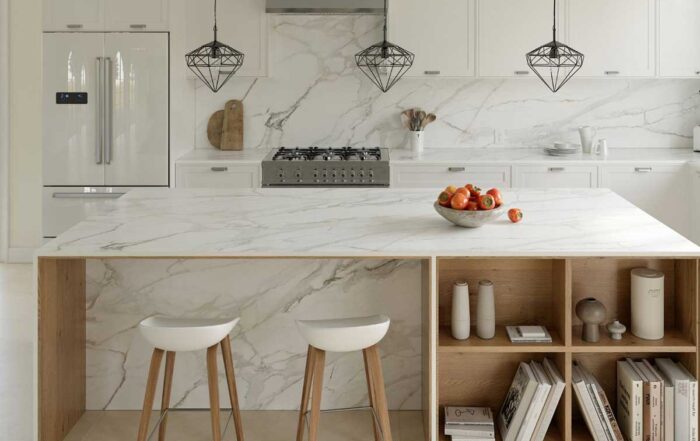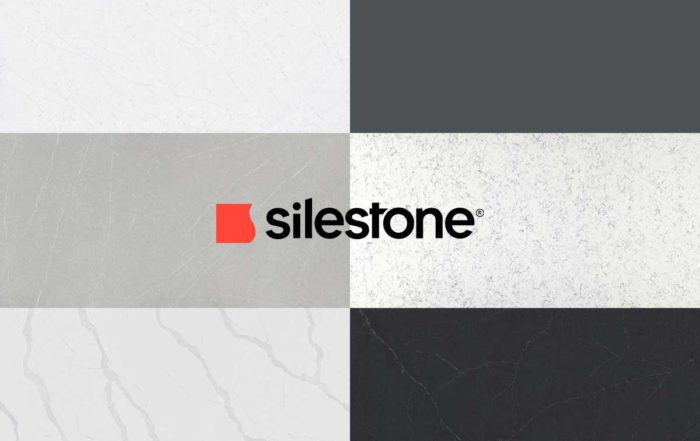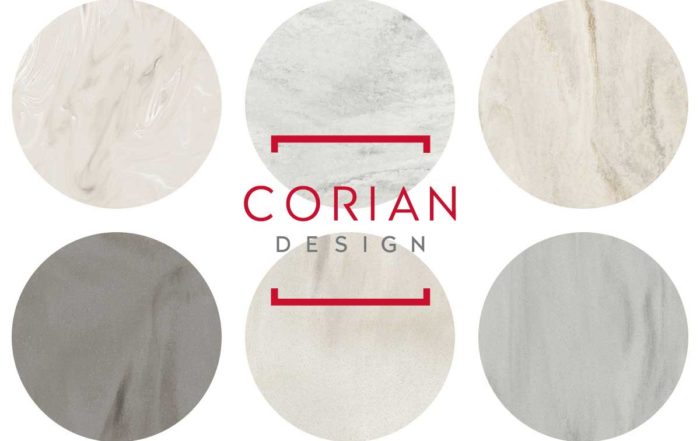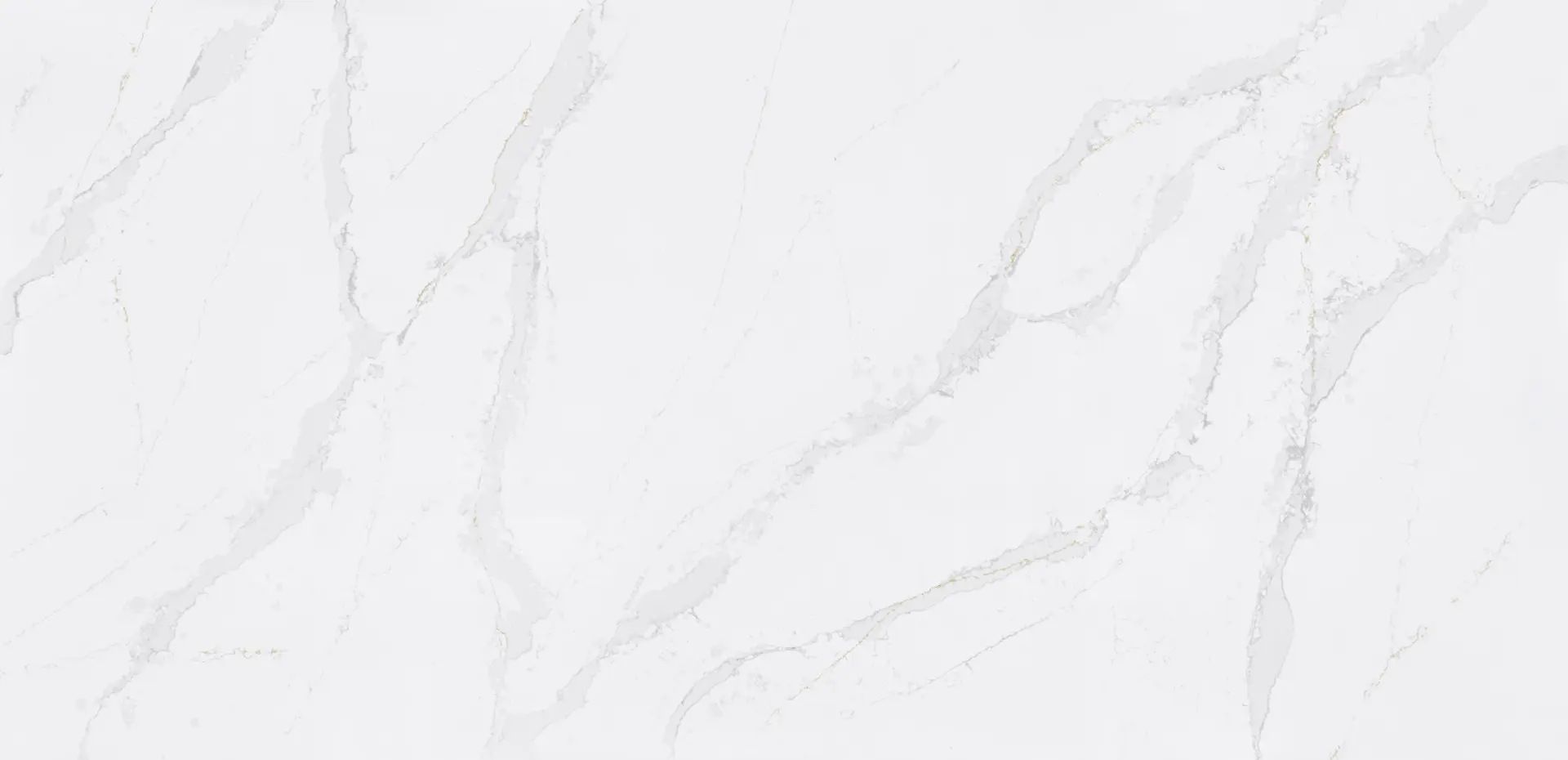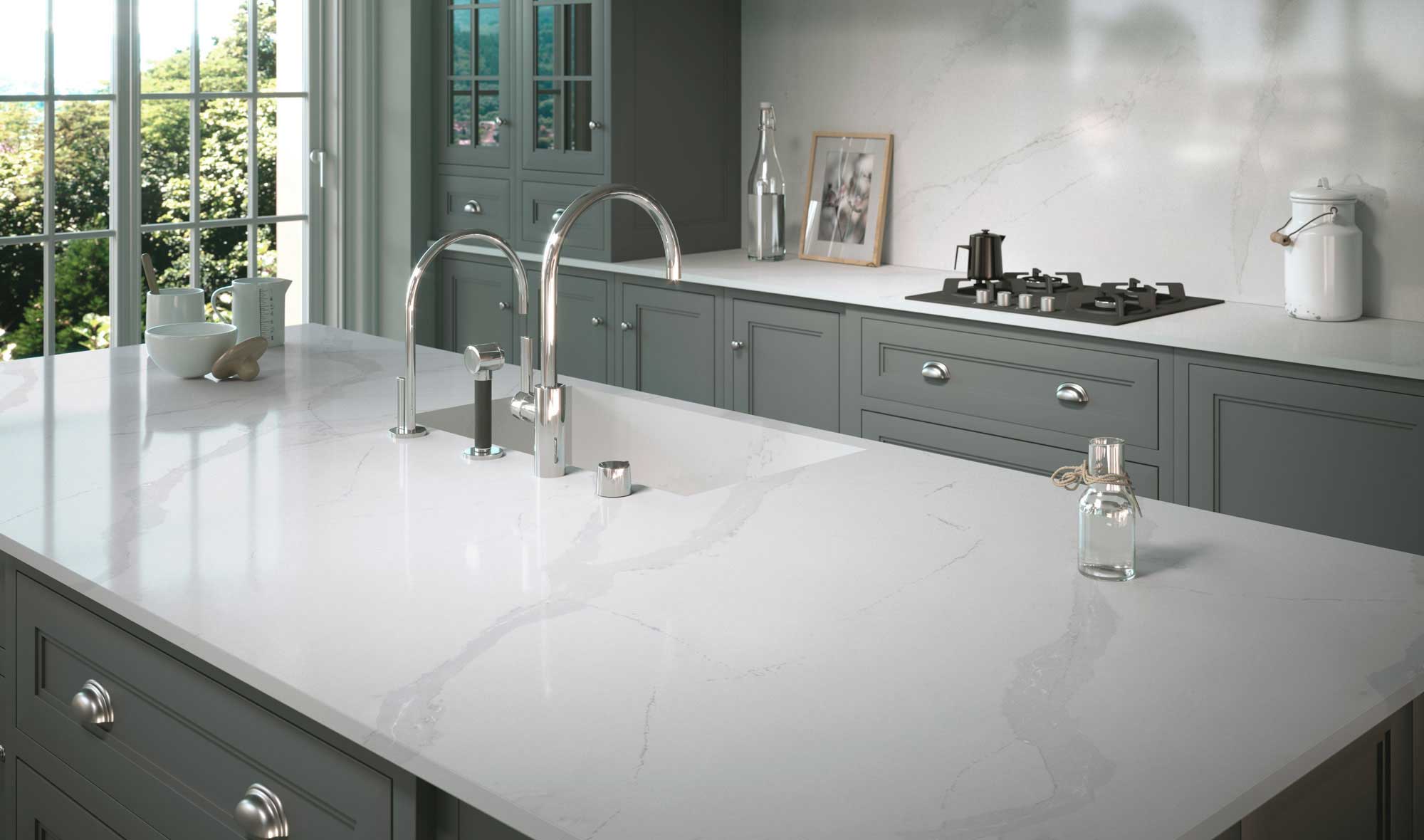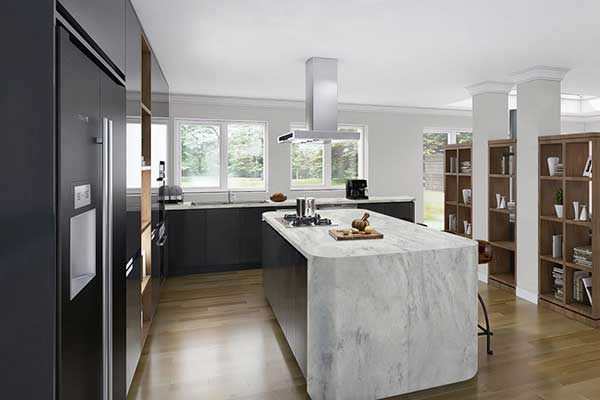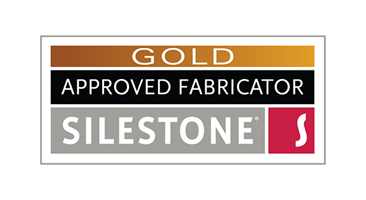Characteristics of Marble
Marble is a soft natural stone and is susceptible to scratches, etchings, and stains.
When the stone is cut into slabs the surface is machined to a gloss finish. This process helps protect it but it will still absorb anything left on the surface.
This is why marble has to be sealed with a stone sealant to help stop any staining damage. This is done in the factory but this sealant breaks down with use and does not last forever. If not maintained properly with routine sealing and daily cleans, marble worktops have an extremely high chance of receiving damage from staining.
Marble is a porous stone, so it is susceptible to staining. Stains are caused by common household items including acidic products like nail varnish remover, bleach, lemon, vinegar, and wine which will attack the stone sealer and then etch the surface leaving patches. However it is not just acidic products that will damage the surface. Water staining is common when the stone sealant not periodically been resealed.
Acidic products strip away the protective sealant that covers a marble countertop. Any cosmetic or others oil based products will stain the surface and penetrate deeper into the material. Oil seeps through the pores and is extremely difficult to remove.
Marble is a soft material so excessive chopping, cutting, or dragging objects such as keys can heavily damage your marble worktop surface with numerous penetrating scratches. Simple things like belt buckles rubbing against the edge of the vanity will also damage it. Also cleaning with rings on your hands can scratch the surface very easily.
Despite marble’s natural cool feel, it is susceptible to extreme temperatures. Hair straighteners etc can cause severe damage and scorch the surface.
How to Care for Your Marble worktops
Your marble worktops have already been pre-sealed but it’s important to reseal marble worktops periodically. Sealing is a process of closing the pores inside of marble to make it resistant to the absorption of chemicals, acids, and other stain-producing moistures. It is recommended having your marble worktops sealed once or twice a year, depending on how often you use them.
 Your vanity units have been sealed withTWINS.TW
Your vanity units have been sealed withTWINS.TW
http://lantania.it/pdf-download/EN/marmopietra/TWINSTW.pdf
We would recommend resealing with this product or similar to keep your surfaces protected for years to come. You can apply this with a cloth after you have thoroughly cleaned your vanity unit.
Everyday Cleaning
Clean regularly by wiping them clean after each use. Doing so eliminates any leftover particles that can scratch or stain the marble.
Daily Care For maximum cleaning results when dealing with your marble worktops, use a microfiber cloth and water or neutral detergent to wipe clean your surface. Because marble is a porous natural stone, it is not recommended to use abrasive products or generic chemicals to clean your marble worktops. Instead, it is wise to invest in a cleaner specially designed for worktops.
The best home cleaner that you can use is a simple mixture of soap and water, but it is wise to invest in a special worktops cleaning solution (natural stone cleaner, ph balanced).
 We would recommend detertwins or similar .
We would recommend detertwins or similar .
(http://lantania.it/catalogo/ceramica-e-gres-en/manutenzione-ordinaria-ceramica-e-gres-en/detertwins) .
This is a neutral detergent suitable to the daily cleaning of any surface in marble stone, granite, terracotta, wood, pvc, linoleum, etc… DETERTWINS gently cleans leaving a pleasant perfume. No need to rinse.
Dilute one glass of product in 4-5 lt of water. In case of tough dirt increase the dilution until using it pure.
Other inspiring articles
Dekton worktops: Pros and cons
We understand that choosing the right worktop can be a daunting task and that’s why we’ve put together the pros and cons of the Dekton worktop if you’re considering this brand for [...]
Silestone vs Granite: Which is right for you?
Overview Quick overview The main difference between Silestone and granite is that granite is natural quarried stone, consisting of between 10-50% quartz, while Silestone is an engineered quartz worktop, made from [...]
Corian vs Quartz
Overview Corian vs Quartz: Differences and Similarities The main difference between Corian and Quartz is that Corian® is a registered brand name for well-known worktops made from engineered stone, known as [...]
Other inspiring articles
Why Silestone Eternal Calacatta Gold is one of the UK’s best selling worktop colours
In the world of interior design, the kitchen is more than just a functional space; it's the heart of the home, a place where style meets practicality. One of the standout stars in kitchen [...]
A Solid Choice: Why Solid Surface Worktops are a Top Pick for your Kitchen
Solid surface worktops, such as Corian, Hanex, and Hi-macs, have been steadily gaining popularity in the world of kitchen design and renovation. While there's a plethora of worktop materials to choose from, solid surface [...]
Choosing the Perfect Kitchen Worktop
A comprehensive guide to Quartz, Solid Surface, Ultra Compact, Granite, and Wood When it comes to designing your dream kitchen, one of the most crucial decisions you'll make is selecting the perfect [...]
How to restore Corian countertops
Corian countertops are a popular choice for many homeowners due to their durability and low maintenance requirements. But if yours has become stained or damaged, you’ll need to know how to restore [...]

